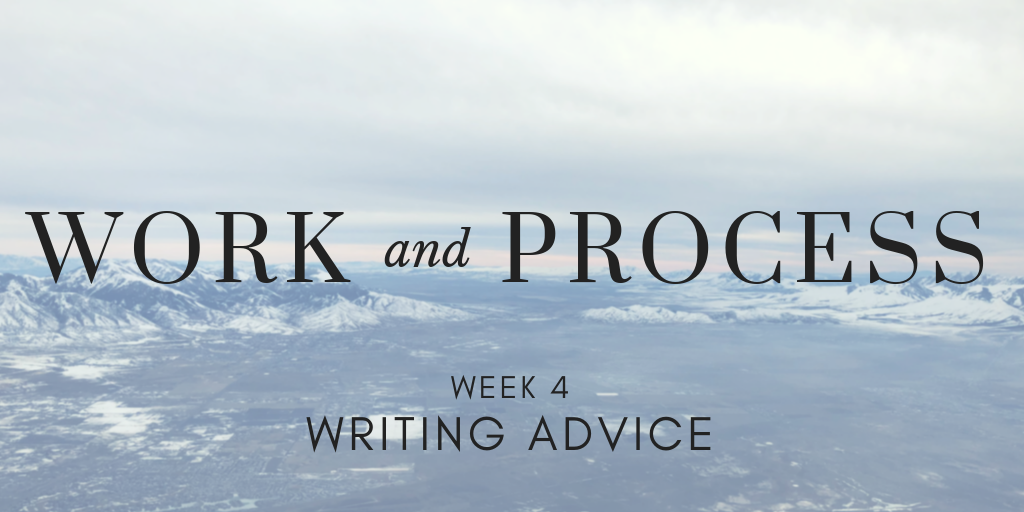|
Since I first started studying writing seriously in 2003, when I enrolled in my first creative writing course at UC Santa Cruz, I’ve heard my fair share of prescriptive writing advice: Eschew passive voice. Vary your sentence structure. Kill your darlings. Reduce your word count by doing a global search for every “that” or “just” or instance of filtering in your manuscript and delete them all in a sudden, wild exorcism!
I’ve seen this kind of instruction doled out on Twitter, in workshops, at lectures. I’ve had rules like show, don’t tell drilled into my head until I believed they were not only true but unassailable. However, the longer I’ve done this, the more I’ve found myself repelled by rigid decrees of craft. Perhaps it’s my creative and rebellious spirit. Or perhaps I’ve just learned that all of these edicts can be good advice, but none of them work as wholesale, unbreakable writing dogma, because for every craft “rule,” it's likely that there’s a situation where you can and should break it. Adopt the passive voice when it suits the situation, narrator, or character. Hammer at a single sentence structure when writing from the perspective of an obsessive, unrelenting point-of-view. Keep your darling if it’s the beating heart of your work. Evaluate your sentences for rhythm, tone, or voice, and use every filler word with purpose. Summarize when you need a beat of exposition but a lengthy scene or description would be inconsequential to and therefore distracting from the story. To me, it all boils down to studying and improving your craft. By all means, learn the rules, why they’re there and how they work and when they’re useful (or not). Then, if need be, break them. That’s why, when I’m asked what advice I have for writers, there are really only two suggestions I think will apply, no matter the writer, no matter the journey, to anyone and everyone, and those pieces of advice go hand-in-hand. The first: always keep learning. I’m of the mind that no matter how good your craft is, no matter how much you’ve accomplished, there’s always something more to learn, something new to try. I love challenging myself in my work. The Reader had eight point-of-view characters? The Speaker had ten. The Reader had three timelines? The Speaker had three timelines and one of them was told backwards. I wrote a trilogy? Next, I’m going to try writing a standalone. My books tend to be lengthy? Next, I’m going to try writing something under 100,000 words. I feel like there’s always something I can improve on, or something I haven’t attempted yet. For me, craft is aspirational. What else can I do with the written word? How else can I tell a story? How can I get better as a writer and an artist and also as a person? Personally, I do all sorts of things to develop my craft. I read outside my genres. I take classes. I study books on writing. I comb the internet for tips and tricks. I take notes on stories I adore and dissect them bit by bit to figure out how I can write something half as good. I listen to discussions about representation. I learn about power and history and debt and colonialism and culture and oppression and people and the world. I interrogate my brilliant writer friends, trying to learn their secrets. There is a danger to never being satisfied, however. With all of that input (from teachers, books, internet, colleagues, etc.), you can easily lose your own vision, that burning flame of an idea or inspiration that first made you want to tackle this story, this poem, this piece of art. You can try to write too much like someone else and not enough like yourself. You can listen to too many other voices and not your own heart. So what you create doesn’t end up sounding like you at all, doesn’t really belong to you as the Thing That Only You Could Have Made. Which is why my second piece of advice is: stick to your guns. When I was in graduate school, I was working on this short story of deliciously experimental upside-down fairy tales. I was repeating scenes, switching settings without clear logical reasons, doubling back on my own timelines, and boy did my classmates not get it at all. I once sat through an hour-long workshop of readers telling me to write something a little less weird, a little less difficult, a little more inside-of-the-box, a little less me. After class, however, one of my colleagues came up to me in the hallway and told me I was doing things that were challenging and different and exciting. He told me not to listen to the haters. He told me to stick to my guns. So I did. And I have ever since. That’s why I write ambitious multi-POV, multi-timeline, meta-fantasy epics like The Reader Trilogy. That’s why I tackle daring projects that play with narrative structure and question how we tell stories. That’s why I’m always trying to find that Traci Chee twist and will only attempt a project if I have a clear sense of what my own personal magic can bring to it. I’m not saying that your vision or your instinct is always right. I’ve abandoned ideas I was in love with when I realized they weren’t mine to write, or that I would be taking the place of another writer who could be speaking for themselves or to their own community with more authenticity and nuance than I could ever hope to have, no matter how much I learned or researched. I’ve let go of ideas because I didn’t feel like I could bring anything new or worthwhile to them or the ongoing cultural conversation about them. I've dropped stories because they simply wouldn't work, no matter how much I revised them. That’s the learning part. Learning when you should step back. Accepting when your genius idea isn’t so genius after all. Peering into your own blind spots. Knowing when not to do something as well as when to dive into it with all you’ve got. As an artist, I try to maintain that curious and seemingly contradictory balance: being open to change and growth while, at the same time, remaining true to my vision and my voice. And: Knowing who I am as an artist while, at the same time, being ready and eager to keep learning and improving. This is all a roundabout way, I suppose, of saying that while part of Work and Process is reflection (like I’ve done these past few weeks), another part of it is craft work. In the months ahead, I’d like to share some writing advice with you, what works for or has been helpful to me, but I’m not interested in being prescriptive. I’m not interested in telling you what you can or can’t do with your own storytelling. I am, however, interested in sharing approaches to craft, techniques that I’ve found useful, perspectives on writing that I’ve incorporated into my own process. Please, adopt what’s helpful to you! Leave what isn’t. I look forward to sharing and learning with you in the weeks to come. Next week: TIME TO BEGIN. After all the thinking and the ruminating and the researching and the pondering and the percolating, when do you know it’s time to start a project? How well-developed does an idea have to be before you approach it? What do you have to know before you put the first words down on the page? How much research do you complete before writing a word? How well do you understand your world, your characters, your conflicts, themes, or plot by the time you tackle that first scene or chapter? In other words, how do you begin? Let’s do this thing next Sunday at tracichee.com and/or post your own responses with the hashtag #workandprocess. Peace and progress. <3 Work and Process is a year-long journey of exploring and reflecting on the artistic process, craft, and working in a creative field. Each Sunday, I’ll post some thoughts, wonderings, explanations, and explorations on writing and creativity, and by the end of it, I hope to have 52 musings, examinations, meanderings, discoveries, bits of joy or inquisitiveness or knowledge to share. In each post, I’ll also include a topic for the following week, so if you happen to be inspired to question/wonder at/consider your own work and process, you’re welcome to join me. We’ll be using the #workandprocess hashtag across all social media platforms, and I hope we find each other to learn and connect and transform on our creative wanderings. Comments are closed.
|
ARCHIVES
February 2024
CATEGORIES |


 RSS Feed
RSS Feed